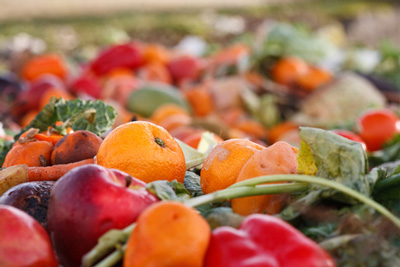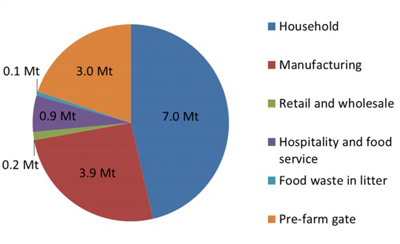The food waste challenge
- Like
- Digg
- Del
- Tumblr
- VKontakte
- Buffer
- Love This
- Odnoklassniki
- Meneame
- Blogger
- Amazon
- Yahoo Mail
- Gmail
- AOL
- Newsvine
- HackerNews
- Evernote
- MySpace
- Mail.ru
- Viadeo
- Line
- Comments
- Yummly
- SMS
- Viber
- Telegram
- Subscribe
- Skype
- Facebook Messenger
- Kakao
- LiveJournal
- Yammer
- Edgar
- Fintel
- Mix
- Instapaper
- Copy Link
Posted: 14 April 2016 | Monica Jacobsonn, Content Manager at Happy To Survive | No comments yet
Here Monica Jacobsonn, lifestyle blogger and Content Manager at Happy To Survive, discusses the challenge food waste poses to households and manufacturers…


Have you noticed that more and more media sites and lifestyle blogs write about the problem of food waste?


Non specialized magazines and news outlets, such as The Guardian, The Washington Post, The Atlantic and others, have attracted readers’ attention to this issue with articles on the topic. It’s pretty clear that governments, businesses and common consumers can’t ignore the fact that the current state of food consumption is threatening.
About 40% of food manufactured is thrown away. It is usually damaged during transportation, wasted by retailers and consumers. Let’s take a closer look at the main parts of supply chain: food manufacturers, retailers and households.
Households
It’s better to see something once than to hear about it a thousand times. So look at the diagram illustrating the amounts of food waste arising in the UK by sector (research by WRAP UK):


As we can see, the largest part of food loss is produced by households. Moreover, about 90% of that food waste can be avoided. Consumers need to become conscious about their purchases and the ways they use their food. There are many helpful tips for reducing food waste at home; here are some basics for everyone to remember:
- Plan ahead and follow the list when you’re in the store. Before making an impulse purchase, try to answer the following question: Will I be able to finish that chocolate bar / snack / etc? If the answer is No, just pass by.
- Check product expiry dates. Buy the products with the upcoming expiry date, that way you will reduce the risk for that product being thrown away.
- Make the most of your food leftovers. There are many great dishes you can cook from leftovers. Here is an interesting infographic 7 Dishes Made Using Leftover Food. It shows seven gourmet recipes that are easy to make and tasty to eat:
7 dishes made using leftover Food Storage. [Infographic] by the team at Survival
Food manufacturers
Actual food production accounts for almost 26% of the UK food waste and it’s the second largest food waste source. Therefore, manufacturers should work actively on the optimization of their production systems, educate consumers, raise awareness about the issue and take other necessary steps to decrease food loss.
“As well as having an environmental impact, food wastage ultimately leads to higher costs for the sector as a whole. As a responsible manufacturer, addressing food wastage will benefit both the company and consumers.” KP Snacks
Here are some actionable tips for food producers:
- Conduct regular wastage audits and analyze the results.
- Take advantage of by-products and create new packaging.
- Prepare better packaging material that extends the shelf-life of products.
- Offer such products that help consumers prepare the leftovers.
- Constantly check and improve supply chain logistics.
- Share and implement best practices within the food industry.
- Participate in public discussion and troubleshooting forums. Ask for help if needed and offer your expertise when solving the waste problems.
Food waste issue is a global challenge and should be addressed accordingly. A recent study form the Potsdam Institute for Climate Impact Research (PIK) shows that the decrease of food waste and better distribution management will allow to eliminate almost 14% of agriculture’s emissions in 2050. By taking actions in both household and manufacturing sectors, it is possible to effect the climate change for better.
|
About the author Monica Jacobsonn is a lifestyle blogger and content manager at Happy To Survive. She writes mainly about food waste, consumption and environment issues. |








